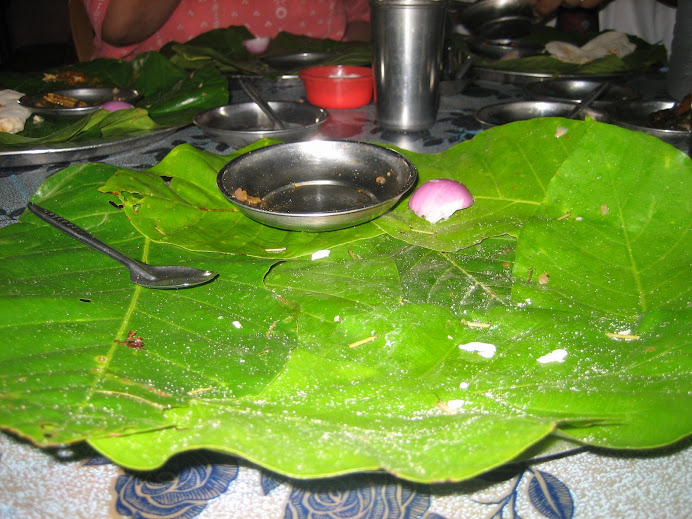



Summer Camp 2008 is over, and guess what? I survived!
On Friday evening, May 16th, about 170 children, ages 4-17, from all four project descended on St. Michael's School, the venue for the camp.
The came running, jumping, squealing, and laughing ready to celebrate being out of their villages for a couple of days.
The introduction session began simply enough with Presbyter Amiya Das leading the singing. Now Amiya knows how to work a crowd, especially a young one, so it wasn't long before all the kids and lots of us older folks were in full swing singing who knows what in Bengali and Hindi complete with motions.
Then a ferocious storm blew in, unusual for May, giving Day 1 a new twist. There was heavy rain, high winds, thunder and lightning; trees were toppled and blocked the road in front of the school, lines were downed, knocking out the power, and the water pipe was broken.
Like most big things around India, St. Michael's has a generator, so we weren't in the dark for too long, although the rain did cool things off a bit.
Everywhere else, however, was dark, very dark.
The lack of water proved to be a real problem for those folks staying at the school and those responsible for feeding the masses. The next day a water tank was brought in so at least there was water for drinking and cooking. Day 2 found us still hampered with no electricity and no water, but by noon, things were returning to normal. Thank goodness!
Camp included Bible study, singing and dancing, crafts, and a smallish (smaller groups but still big numbers) group discussion, also Bible centered. I had some problems with this as Muslim and Hindu children made up the majority of those attending the camp, and it made the camp seem more like Vacation Bible School than Summer Camp. I have some ideas for next year regarding camp activities. Surprised?
We also held a special "Body Talk" session for the adolescent girls. Girls, and women too, do not know how their bodies work or why things happen when they happen.
They don't know how to manage the menstrual cycle; they stay home and stay hidden which means they are not attending school, thus falling behind.
I can't believe I'm sharing this with you since I practically had to cover my face with my scarf when I was asking the Indian gentleman working with UNICEF, via e-mail, for the booklet on Menstrual Hygiene Management. But like I told the girls, it's a natural, necessary, and normal bodily function. After all, where would we be without it?
This was a tricky session because this subject is culturally taboo, but having the booklet, which was put together by adolescent girls and young women from rural villages in India, made it easier to broach the subject.
We were in the middle of showing the girls how to make a sanitary napkin using old saris and washcloths when another storm blew in bringing lots of hail. Well, forget the SN; let's watch the hail bounce around on the ground and even into our room.
We forged ahead talking about cleanliness, aches and pains, moods, and nutrition during this "time of the month."
The girls had no idea why this thing was happening to them. Rita, the bishop's wife is a nurse and now teaches biology, so she told the girls about the male flower and the female flower. whatever works, right?
The girls went back to their leader with high praise for the session.
My hope is to gather these girls together once a month at Shanti Griha to have more "learning conversations." The learning conversations model comes from Freedom From Hunger which works in the poorest Indian states, West Bengal being one of them.
Camp ended on Sunday evening. The maracas, rock bugs, jewelry and rainbow fish were all on display in front of the stage, the parents from the Durgapur project were all in attendance, and the teachers were cleaned up and decked out in nice saris, except for me who still had on camp clothes complete with paint and glue stains. As usual, I had to "say a few words."
The Cultural Program is always the highlight of any event in India. It gives the kids a chance to strut their stuff and they do this very well. I love watching these kids perform.
Then it was time to leave. There were hugs and there were tears, lots of tears as new friends and old said their good-byes.
Summer Camp-a great idea and a wonderful opportunity to plant new seeds, nurture young plants and tender seedlings.
I'm already planning for Summer Camp, 09.

